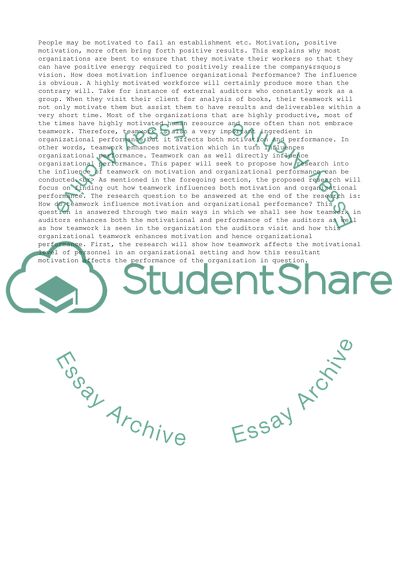Cite this document
(Work and Organizational Psychology Research Proposal, n.d.)
Work and Organizational Psychology Research Proposal. Retrieved from https://studentshare.org/management/1554125-the-influence-of-team-work-on-motivation-and-organisation-performance
Work and Organizational Psychology Research Proposal. Retrieved from https://studentshare.org/management/1554125-the-influence-of-team-work-on-motivation-and-organisation-performance
(Work and Organizational Psychology Research Proposal)
Work and Organizational Psychology Research Proposal. https://studentshare.org/management/1554125-the-influence-of-team-work-on-motivation-and-organisation-performance.
Work and Organizational Psychology Research Proposal. https://studentshare.org/management/1554125-the-influence-of-team-work-on-motivation-and-organisation-performance.
“Work and Organizational Psychology Research Proposal”, n.d. https://studentshare.org/management/1554125-the-influence-of-team-work-on-motivation-and-organisation-performance.


